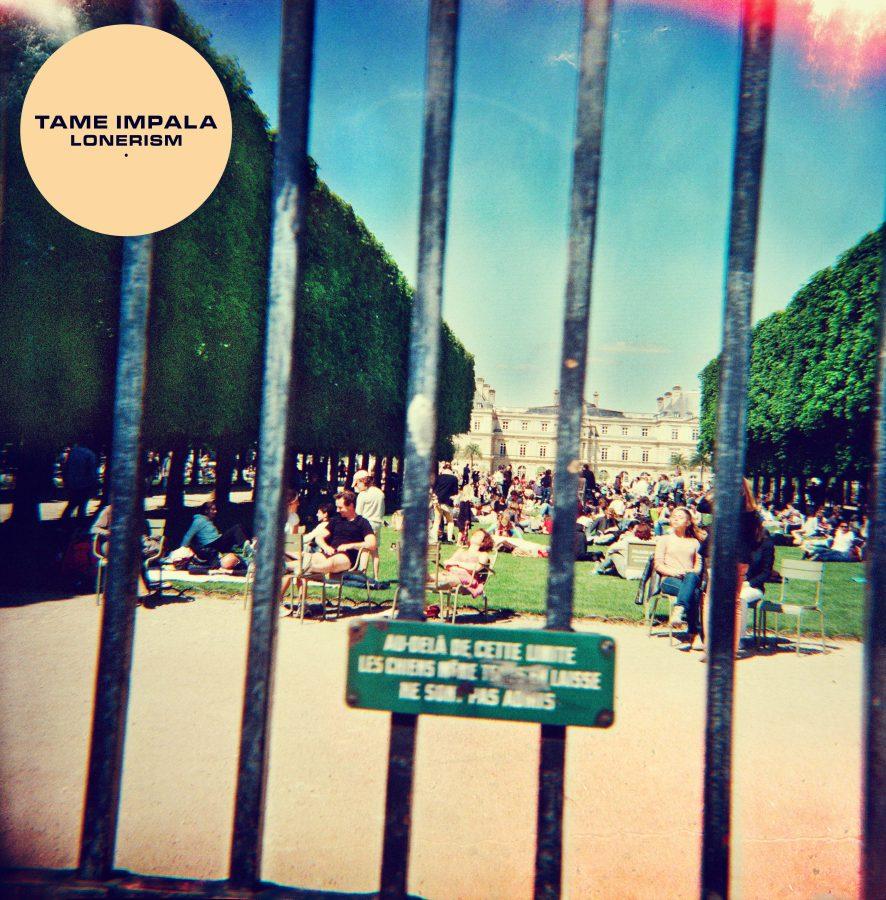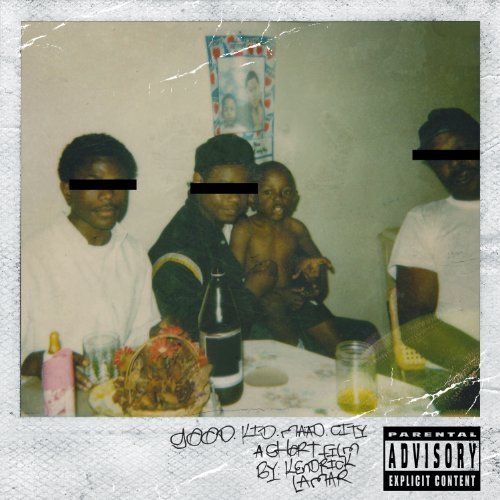good kid m.A.A.d city
Kendrick Lamar’s first major label offering from Interscope and Aftermath Entertainment is good kid m.A.A.d city. Lamar is still involved with the independent blueprint, Top Dawg Entertainment, which jumpstarted his career.
His album far exceeded my expectations since first hearing Overly Dedicated and Section.80 over a year ago. Critics are calling good kid m.A.A.d city a classic less than a month after its release, and it is already being heralded as the best rap album of the year. The album unfolds like a story with intertwined skits which give a personal look into Lamar’s circumstances living in Compton — which as a premise for an album I’d usually find a bit uninspired, but it seems to work here. The album opener, Sherane, sets the pace for the rest of album. Lamar raps in narrative about meeting a girl at a party and feeling accomplished although he knows she could potentially be dangerous. The first skit is of Lamar getting jumped outside of Sherane’s house.
Bitch Don’t Kill My Vibe is a hooky retreat from the seriousness of other songs of the album. Poetic Justice has the only feature of the album, Drake, but I think it would have been better without it. Drake takes away from the narrative; his verse seems to appeal to women and fans of a more sensitive appeal. Tracks like Money Trees and The Art of Peer Pressure seem to solidify Lamar’s place in the hip-hop elite with a combination of thoughtful lyrics and an innate catchiness. The album is strong throughout — it doesn’t lose its impact after multiple listens. It is without a doubt one of the strongest releases of the year.
Lonerism
Tame Impala, a pysch-pop group headed by Kevin Parker from Perth, Australia recently released Lonerism as a follow up to 2010’s Innerspeaker. Lonerism takes much of what was enjoyable on Innerspeaker and amplifies it. The music feels heightened; Parker’s lyrics and melodies seem more concise. Lonerism blends classic push-rock, dream-pop, the experimental sounds of the ’70s (see Brian Eno) and ’90s club music to create something palatable and new.
Standouts on the album include, It Feels like We’re Only Going Backwards, Apocalypse Dreams and Why Won’t They Talk to Me. Elephant, which will undoubtedly be a festival favorite, has one of the coolest moments of rock this year when Parker sings, “He pulled the mirrors off his Cadillac/’cause he doesn’t like it looking like he looks back.”
I remember reading somewhere that Tame Impala are the best rockers in the world or Beatle-esque, which I think are obvious overstatements. Their buzz seemed to take serious form after dropping the single, Elephant, which earned a lot attention from blogs and MTV. Lonerism feels very accessible and does not seem gimmicky or controlled like MGMT’s sophomore release, Congratulations. Hopefully they won’t get stuck in the same paradox as MGMT by developing an indie following, gaining mainstream attention, losing their indie following and then becoming irrelevant to the mainstream, being forced to tour internationally for the rest of their careers.
Good Don’t Sleep
The long-awaited follow up to their 2010 EP, Some Reptiles Grew Wings, Good Don’t Sleep is sonic and textural gold. The layering, intricate noises and half-sigh from front man Alex Hewlett all come to together to make the album flow. The third track, Alalon, sets the tone for the album, while the first two tracks are forgettable. Following is Yoro Diallo, which was released as a single and had an accompanying visual with a funky ’90s aesthetic.
The lead single, SYH, is the highlight of the album. The group seems to do everything they have the potential to do here, and it’s exciting. I’m fond of Snake Lane West, but after about two minutes the experimentation becomes more annoying than innovative. This album would have probably worked better as an EP — the meat of the album is between tracks 3-8, and I think any combination of those six tracks would have been a solid release.
The group has not quite come into their own where songwriting is concerned, which seems to be the main criticism of the indie blog circuit. Their fascinating take on dance-pop and Talking Heads-like experimentation fills the void where their pens don’t. I think that once the group becomes better at editing and writing, we’ll see an album that is close to perfect.
Trilogy
Trilogy is The Weeknd’s first major label release. It is a compilation of his three mix tapes from 2011, House of Balloons; Thursday; and Echoes of Silence. The three tapes have been re-mixed and mastered, plus there are three new songs — one for each of the old mix tapes. House of Balloons retains its eerie drugged out appeal and a weird space between R&B, industrial and progressive rock. The tape remains almost untouched aside from its sonic re-workings. With his new major label backing, most of the samples were cleared. With exception of What You Need, the Aaliyah vocals have been stripped. The bonus track, Twenty-Eight, seems a little out of place, but its saving grace is its dark connotations. Thursday, his second release and my personal favorite because of its consistency and matter-of-fact vulgarity, seems to have been perfected by re-mixing. I think Thursday, by current industry standards, could be a stand alone as a raw substitute for Frank Ocean or Miguel. Valerie, the new addition, fits into the album’s premise and is a perfect segue into Echoes of Silence.
I was not to too fond of Echoes when it originally dropped last December, but it has grown on me in the year since. Next is the highlight of the re-working. The new vocal backings will make the hair on the back of your neck stand up, and the increased bass adds a new element of excitement to the track. Overall, Trilogy is a nice, formal introduction to the mainstream. Hopefully The Weeknd’s first LP delivers in the same way his 2011 mix tapes did.


